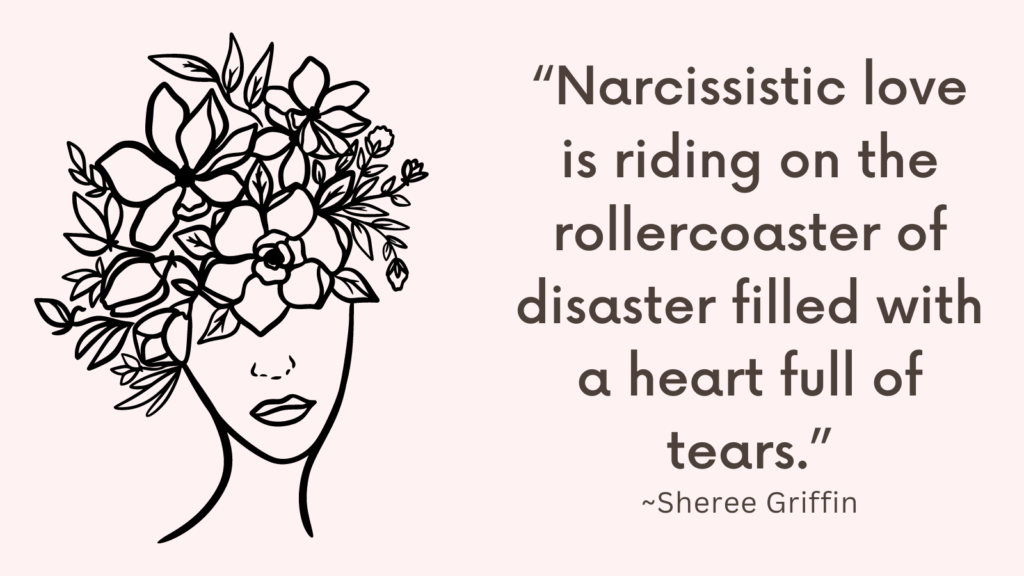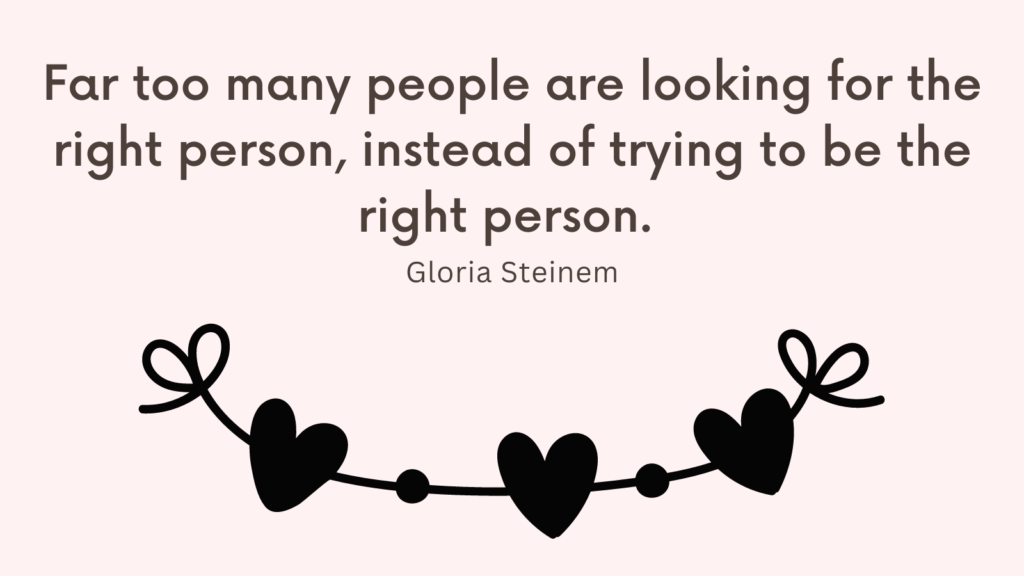In this post, you’re going to learn all about love bombing then ghosting.
What Is Love Bombing?
Love bombing is a term used to describe a manipulative tactic often employed in the beginning stages of a romantic relationship or even within friendships or family relationships.
It involves someone showering another person with excessive affection, attention, and validation, often to gain control or influence over them.
Love bombing can be emotionally intense and overwhelming for the recipient. Genuine love does not require excessive displays or constant validation.
It is important to take time to understand our own boundaries, intuition, and red flags within a relationship.
Ultimately, a healthy relationship should be based on honest communication, mutual respect, and the freedom to express one’s needs and desires.
Signs of Love Bombing
Signs of love bombing in a relationship can include:
1. Intense and excessive affection: The person overwhelms you with an extraordinary amount of attention, compliments, and expressions of love, often early on in the relationship.
2. Rapid progression: The relationship moves at an unusually fast pace, such as saying “I love you” very early or making plans for the future that seem disproportionate to the length of time you’ve known each other.
3. Grand gestures: The person may go to great lengths to impress you, showering you with expensive gifts or extravagant experiences.
4. Constant communication: They bombard you with frequent messages, calls, or social media posts, wanting to be in constant contact and maintain your undivided attention.
5. Isolation from others: The love bomber may try to isolate you from friends, family, or other potential sources of support, making you heavily reliant on their validation and attention.
6. Idealization and idolization: They put you on a pedestal, elevating you to an unrealistic level of perfection and making you feel like they’ve found their soulmate.
7. Mirroring your interests and values: The person will portray themselves as having everything in common with you, adopting your hobbies, beliefs, and preferences to create a false sense of compatibility.
8. Fluctuating behavior: Love bombers often exhibit unpredictable mood swings, alternating between extreme adoration and periods of coldness or withdrawal.
9. Control and possessiveness: They may display controlling behaviors, insisting on knowing your whereabouts at all times or becoming jealous and possessive, trying to limit your interactions with others. It’s crucial to remain cautious if you notice these signs.
While genuine affection and attention are normal in the early stages of a relationship, love bombing is characterized by an overwhelming and manipulative intensity.
Related: Am I Being Love Bombed Quiz
What Is Ghosting?
Ghosting is a term commonly used in modern dating and relationship contexts.
It refers to the sudden and unexplained cessation of communication from one person towards another, with no explanation or closure.
The person who is being ghosted is left feeling confused, hurt, and rejected, often without any opportunity for resolution or understanding.
Love Bombing Then Ghosting Cycle
Love bombing followed by ghosting is a manipulative pattern seen in some relationships.
It typically begins with love bombing, where one person showers their partner with excessive attention, affection, and compliments, creating an intense and overwhelming sense of love and security.
This phase often feels blissful and intoxicating, as the love bomber makes their partner feel like the center of their world.
However, once the love bomber’s true intentions or insecurities come to light, they abruptly vanish or “ghost” their partner without explanation or closure.
This destructive cycle can leave the victim feeling confused, hurt, and questioning their own worth and value.
Love bombing can sweep someone off their feet, making it difficult to see through the facade of false love. The love bomber may manipulate their partner’s emotions, using grand gestures and intense displays of affection to gain control or exploit vulnerabilities.
An example of this cycle could be seen in a romantic relationship, where a partner initially showers their loved one with gifts, constant attention, and romantic gestures.
They may seem perfect and attentive, overly interested in their partner’s life and preferences.
However, as time goes on, the love bomber’s behavior may change drastically – they become distant, ignore messages, or cancel plans frequently.
Confusion and frustration ensue, leaving the victim feeling abandoned and questioning what went wrong. It is essential to recognize the love bombing then ghosting cycle as a form of emotional manipulation and abuse.
Victims may blame themselves for the relationship’s demise, but it is crucial to understand that the love bomber’s actions are not a reflection of the victim’s worth or desirability.
Related: Top 10 Narcissistic Relationship Patterns
Why Do People Engage In Love Bombing Then Ghosting?
People who engage in love bombing followed by ghosting typically have manipulative tendencies and may exhibit narcissistic or emotionally abusive behavior. Understanding their motivations can provide insight into why they engage in such patterns:
1. Desire for control
Love bombing is a strategy used to gain control over another person’s emotions and actions.
By overwhelming someone with excessive affection and attention, the manipulator aims to establish a sense of dependence and power dynamics in the relationship.
2. Need for validation and admiration
Individuals who engage in love bombing often crave constant validation and admiration from others.
They use this intense display of affection as a means to boost their own self-esteem and feed their ego.
3. Fear of intimacy or commitment
Love bombing can be a way for some individuals to create an illusion of deep emotional connection without actually having to be vulnerable or genuinely invest in a relationship.
Ghosting then allows them to avoid any potential conflicts or responsibilities that come with building a genuine connection.
4. Lack of empathy
People who engage in love bombing followed by ghosting may have difficulty understanding or empathizing with the emotions and experiences of others.
They prioritize their own desires, manipulating others for personal gratification without considering the harm they cause.
5. Emotional instability or insecurity
Some individuals who engage in these patterns may have their own unresolved emotional issues or insecurities.
Love bombing and ghosting can be ways to test the other person’s loyalty or to protect themselves from potential rejection.
It’s important to remember that these motivations are not excuses for such behavior.
Engaging in love bombing followed by ghosting is emotionally harmful and can leave the recipient feeling confused, hurt, and vulnerable.
Related: Why Do Narcissists Ignore You? Top 7 Reasons

How to Deal with Love Bombing Then Ghosting?
Here are some scientific suggestions for coping with the love bombing-ghosting cycle:
1. Recognize the pattern
Understanding that love bombing followed by ghosting is a manipulative cycle can help you detach emotionally and gain perspective.
Recognize the tactics being used and acknowledge that this behavior is not healthy or sustainable in a genuine relationship.
It’s important to understand that love bombing is not a genuine display of love; it is a tactic used by individuals seeking power and control.
2. Understand it’s not about you
It’s crucial to remember that being ghosted is more about the person who chose to end communication abruptly rather than a reflection of your worth or value.
People ghost for various reasons, which can include fear, immaturity, personal issues, or avoidance of confrontation. It’s important to recognize that their actions are not indicative of your character or desirability.
Related: 21 Stages of a Narcissist Relationship (+FREE Breakup Recovery Worksheets)
3. Set clear boundaries
Establishing and maintaining boundaries is crucial when dealing with manipulative individuals.
Clearly communicate your expectations and limits regarding communication, respect, and emotional commitment.
Healthy relationships are built on mutual respect and reciprocity.
Related: How To Set Boundaries With A Narcissist?
4. Avoid self-blame
It’s common to question yourself or wonder if you did something wrong to cause the ghosting.
However, it’s important to avoid blaming yourself or engaging in self-criticism.
Remember that ghosting is a reflection of the other person’s behavior, not your worth.
5. Focus on self-worth
Remember that your worth is not dependent on someone else’s perceptions or actions.
Cultivate self-esteem and self-love by practicing self-care, engaging in activities that bring you joy and fulfillment, and surrounding yourself with positive and supportive people.
6. Learn from the experience
Reflect on the relationship and identify any warning signs you may have missed.
Use this knowledge to be more attuned to manipulative behaviors in future relationships.
While ghosting can be hurtful, it can also provide an opportunity for personal growth.
Use the experience as a stepping stone to better recognize and prioritize healthy communication and mutual respect in future relationships.
Related: 8 Stages Of Healing After Narcissistic Abuse (+FREE Breakup Recovery Worksheets)
7. Allow yourself to grieve
Experiencing the sudden loss of connection can be painful and evoke emotions such as sadness, confusion, or anger.
It’s essential to allow yourself to grieve the loss and process your feelings in a healthy way.
Give yourself time and space to heal and work through the emotions that arise.
8. Take time for healing
Allow yourself the necessary time and space to heal from the emotional impact of the love bombing-ghosting cycle.
Engage in self-reflection, journaling, or other therapeutic activities to process your emotions and regain a sense of control and empowerment.
9. Seek therapy or support
Consider seeking therapy or professional guidance to process the emotional aftermath of being love bombed and ghosted.
A trained therapist can help you navigate any feelings of confusion, self-doubt, or trauma associated with this experience.
Related: Breaking Trauma Bond With A Narcissist

How Long Does Love Bombing Last?
The duration of love bombing can vary depending on the individual and the dynamics of the relationship, but it typically lasts for a relatively short period of time.
Research on love bombing is limited, as it falls within the realms of manipulation and abusive behaviors rather than healthy relationship dynamics.
However, it is important to note that love bombing is not sustainable in the long term.
Once the manipulator achieves their goal—such as gaining control or eliciting a desired response—the intensity of affection often diminishes.
Conclusion
Being ghosted can be emotionally challenging, but with time, self-care, and support, you can heal and move forward towards healthier connections.
It is essential to prioritize your emotional well-being and build relationships based on trust, respect, and healthy communication.
If you find yourself repeatedly caught in the love bombing-ghosting cycle, it may be helpful to seek support to break this pattern and establish healthier relationship dynamics.



